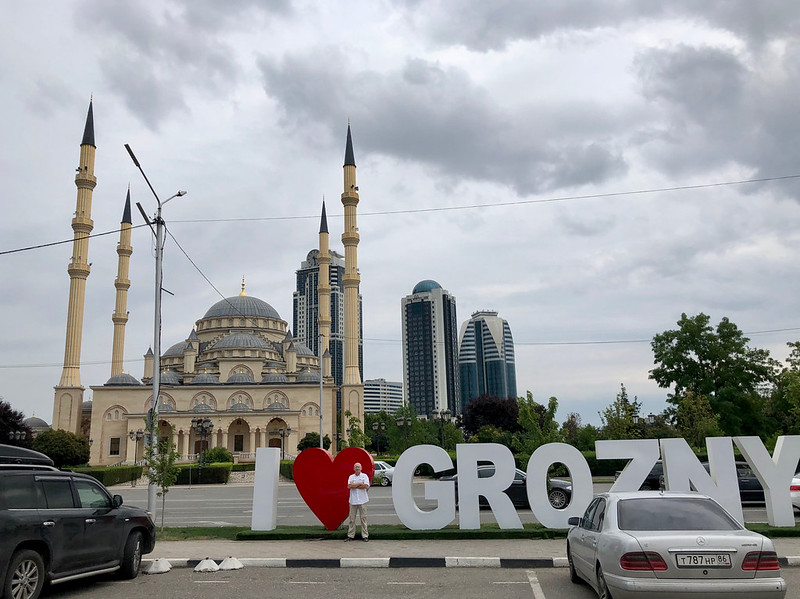The illusion of peace in Chechnya
Grozny is proposed as a model to the Caucasus and Uralia regions traversed by escalating conflicts. But the one implemented after the conflict 20 years ago is a monolithic regime where no form of dissent to Kadyrov is permissible.
Moscow (AsiaNews) - Faced with growing inter-ethnic conflicts in the Caucasian and Uralic areas, such as in Dagestan and Baškortostan, the Minister for Nationalities of Chechnya, Akhmed Dudaev, praised the example of the republic led by Ramzan Kadyrov, which "in twenty 'years have not seen a single case of conflict between nationalities,' arousing rather varied reactions from domestic and foreign observers, as Kavkaz.Realii reports.
The Republic of Groznyj can hardly be considered a model for the other regions of the Russian Federation, being in fact a mononational and monoconfessional country, one of the most jealous in defending its specificity even in the years of Soviet Russia.
According to the 2021 census, 96% of the inhabitants are Chechens, with just over 1% Russians, and less than 3% for all other ethnicities. There are just under one and a half million Chechens, the other nationalities are just over 50 thousand. On a religious level the statistics are even simpler, with 99% Muslims.
An expert on inter-ethnic relations in the North Caucasus, Maksim U. (who preferred to remain anonymous), recalls that the outcome of the two Chechen wars in the 1990s and 2000s "transformed Chechnya into a monolithic republic, destroying the presence of other nationalities, and the current situation of peaceful stagnation is actually the result of the authoritarian regime established after the war upheavals, it is closely linked to the Putin system". The Chechen wars, in fact, were the reason for Vladimir Putin's call to power as a "man of order".
Emil Aslan, professor of political science at the Carolina University of Prague, agrees with this assessment, for whom "ethnic or religious conflicts are not admissible in Chechnya, but references to incorrect interpretations of Islam (from the point of view of the civil authorities) would be enough to light the fuse." And in any case, even the affirmation of the twenty-year absence of conflicts does not entirely correspond to reality, the expert points out.
We also remember after the end of the conflicts, in 2005, a mass clash between the inhabitants of the towns of Moskhob in Dagestan and Novoselskaja in Chechnya, with dozens of injured, between Chechens and Avars who initially fought over the beaches to make bathing in the river, and then moving on to strong methods even with the use of weapons.
A few months earlier, a group of Spetsnaz motorcycle policemen had carried out a "local ethnic cleansing" in the province of Borozdino, justifying it as "leftovers from the war", one of the reasons with which the Chechnya of the Kadyrovs, father and son, explained various forms of repression.
We also remember the conflict between Chechnya and Ingushetia (the two parts of independent Ichkeria, destroyed by Putin's Russia) in 2012, which led to the definition of an official border between the two republics, which did not exist before.
Also in this case the Chechens had justified an action in the village of Galaški, with three deaths, to "suffocate the rebels", a circumstance denied by the then head of Ingushetia, Junusbek Evkurov. The border agreement was definitively signed only in 2018, accompanied by many protests by the Ingush, including street demonstrations suppressed by force.
The latest convictions for protests in Essentukhi in Ingushetia were only three years ago, in December 2021, and the leaders were convicted of "forming an extremist association", the refrain of Putin's last years.
There have also been clashes in recent years over the borders with Dagestan, a republic which is itself historically linked to Chechnya due to ethnic ties that have only recently been "cleaned up". Kadyrov promised to "break the fingers" of those who write on social networks accusations against the Chechens for the borders, and the head of the Grozny parliament, Magomed Daudov, assured that for this problem "we are also ready to declare war, it is our land and we do not share it with anyone."
Discussing in 2021 with the director Aleksandr Sokurov, Vladimir Putin himself admitted that "in Russia there are two thousand mutual territorial claims", partly inherited from Soviet times, partly fueled subsequently as in the Caucasus, which has always been one of the major powder kegs, which could blow up the entire Federation.
Photo: Flickr / Clay Gilliland
07/02/2019 17:28
12/02/2016 15:14







.png)










